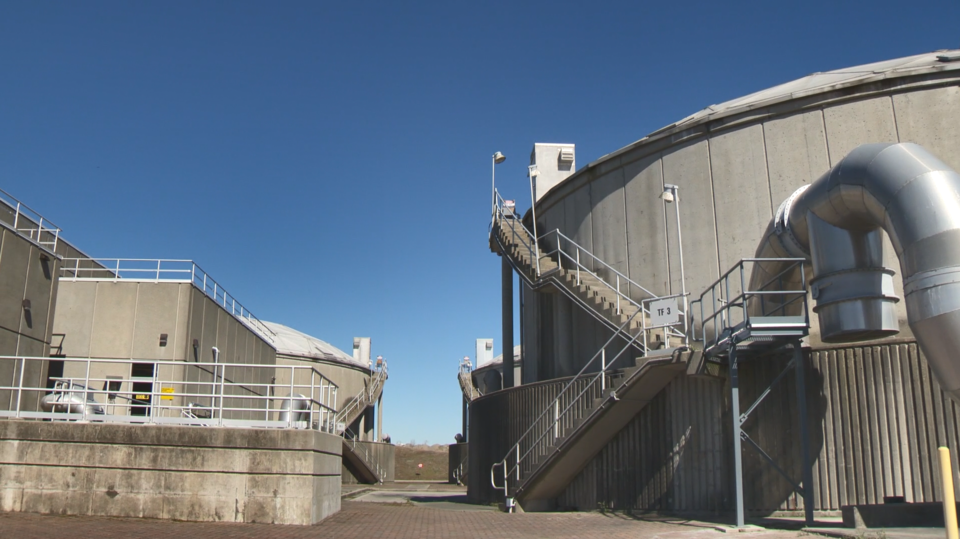A heat recovery project is coming to the Richmond's Lulu Island Wastewater Treatment Plant and it is estimated to cost $10 million.
Local and federal politicians gathered at the wastewater treatment plant on Thursday afternoon to announce the clean energy initiative where heat from the treated sewage will be used as an alternative to warm up the facility instead of biogas.
Funding of $1.78 million from the CleanBC Communities Fund and $2.14 million from the federal government's Investing in Canada Infrastructure Program is going towards the project.
Officials say the project will increase renewable natural gas production and support regional climate action goals.
It will also free up biogas, which is currently being used for indoor heating and plant process needs at the Lulu Island Renewable Natural Gas Facility, which is inside the treatment plant site.
This facility allows the plant to clean and store biogas and was believed to be “the first of its kind,” according to The Richmond News’ report about the facility’s completion last year.
The freed-up biogas can then be cleaned and sold to FortisBC instead, pursuant to its existing agreement with Metro Vancouver to “deliver the renewable natural gas to its customers to reduce their greenhouse gas emissions and help meet provincial climate action targets.”
Revenue, said Metro Vancouver in a media statement, will be reinvested into projects targeting wastewater resource recovery.
The need to flare excess gas, which could pollute the air with more harmful gasses when flares burn poorly or go out, will also be “significantly” reduced.
The Lulu Island plant serves over 200,000 Richmond residents and treats about 26 billion litres of wastewater each year, according to Richard Stewart, chair of Metro Vancouver’s liquid waste committee.
Stewart also highlighted the creative expertise of the city’s liquid waste services team, especially general manager Peter Navratil, who “are always looking for ways to make sure that the resources that we flush down the drain don’t go down the drain, but they get recovered.”
“Liquid waste contains a wealth of nutrients and energy that can be recovered and be used beneficially,” he added.
Work for the project began in April 2021 and construction is expected to begin in 2023 and completed by 2025.




